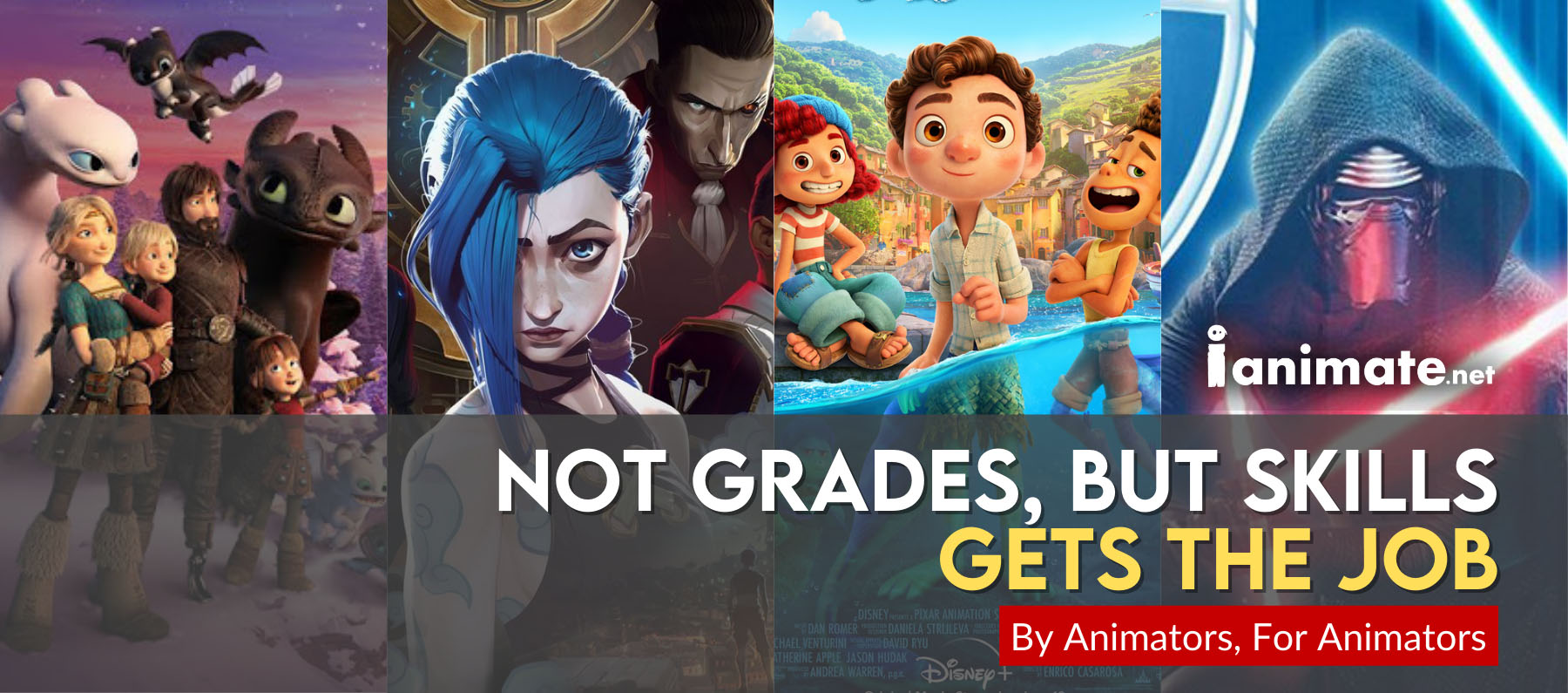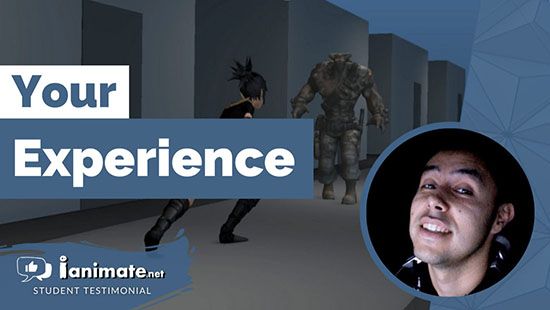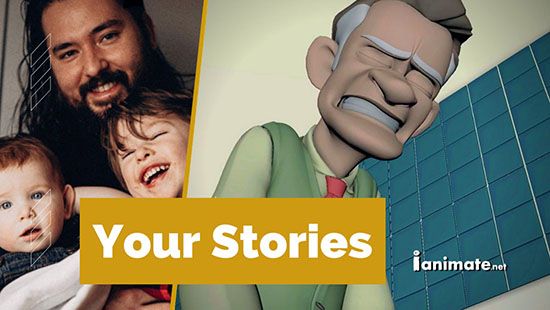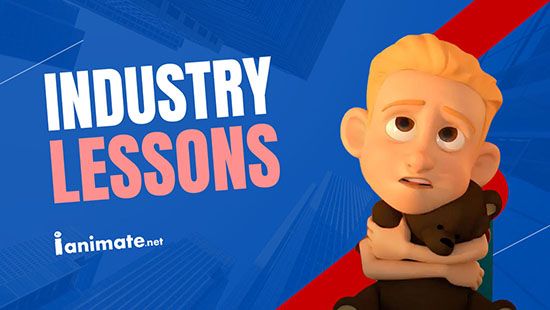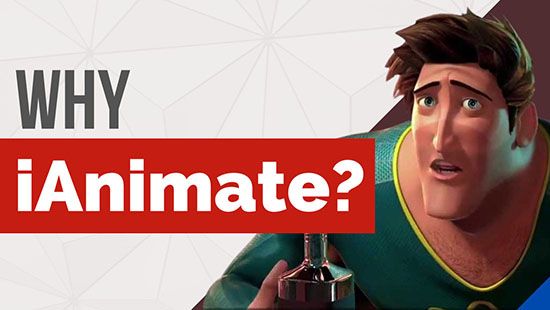Become an Animator: Expert Guide for High School Students
Article by Richard Arroyo & iAnimate Team
Want to become an animator after high school? From industry pros; Learn essential skills, education paths, and expert tips to kickstart your animation career.

If you dream of becoming an animator, you're embarking on one of the most rewarding creative journeys possible in today's digital age. Over our years in the industry, we've watched countless passionate artists transform from curious beginners into accomplished professionals through dedication, continuous learning, and hands-on practice. Whether you're drawn to traditional 2D animation, cutting-edge 3D work, or motion graphics, the path ahead will challenge you creatively while offering endless opportunities to bring your imagination to life.
Educational Pathways to Become an Animator
Hey there, future animator! We hear this question all the time: "Do I really need a fancy degree to make it in animation?" Let me level with you - there's no one-size-fits-all path in animation education.
Back when I started, we basically had two choices: expensive art school or figuring it out yourself. But today? The game has totally changed.
Let's break down your options real quick:
Full Degree Programs (4 years or more)
- Great for building a solid foundation
- Perfect if you love structured learning
- Awesome for networking with other animation students
- BUT... they can be really expensive
Associate Degrees (2 years)
- Like the express lane to animation basics
- More budget-friendly than bachelor's programs
- Gets you into the industry faster
- Though you might need to level up later
Online Animation Training
Here's where we get extra excited - at iAnimate, we've created something special. Think of it like having a personal animation mentor in your pocket.
- Learn at your own pace
- Get feedback from actual industry pros
- Focus on exactly what you need
- Skip the general education stuff
- Way more affordable than traditional schools
The cool thing about online training is you can start right now - no waiting for the fall semester or moving across the country. Plus, you can keep your day job while you level up your skills (hello, paying the bills!).
Remember: Your path to becoming an animator isn't about where you learn - it's about how dedicated you are to mastering the craft. Want my honest advice? Start with some online courses to see if you love it as much as you think you will.
Animation is like learning to play an instrument - you need guidance, but you also need tons of practice time on your own. The most successful animators I know are the ones who never stop learning, no matter which educational path they choose.
Essential Skills to Become an Animator After High School
"Do I need to be an amazing artist to become an animator?" We get this question almost every day, and here's the truth - you don't need to be Picasso! What you really need is a mix of creative juice and technical know-how.
Let me break down the must-have skills I've seen make or break careers.
The Basics You Can't Skip
- Understanding how things move (seriously, watch people walking at the mall - it's not creepy if you're an animator!)
- Basic drawing skills (stick figures are fine to start)
- A good eye for timing (ever watched a badly animated show? Yep, timing was off)
Tech Skills That Matter
- Maya or Blender basics (start with free stuff!)
- Understanding keyframes
- Simple rigging concepts
- Basic video editing
The Secret Sauce (Soft Skills)
- Patience (your first animation will probably look weird - mine sure did!)
- Problem-solving (animation is basically solving movement puzzles)
- Taking feedback without crying (kidding... kind of)
- Meeting deadlines (because nobody likes a late animator)
At iAnimate, we focus on building these skills step by step. Think of it like learning to cook - you don't start with a five-course meal. You begin with the basics and work your way up. Remember: Every Disney and Pixar animator started somewhere - probably making bouncing balls and walking cycles. The key is to practice these skills consistently.
Start with simple exercises
- Make a ball bounce
- Animate a leaf falling
- Create a simple character wave
Each little win builds your confidence and skill set. And hey, if you're wondering "Am I too old/young/inexperienced to start?" - stop that thought right there. The best time to start building these skills is right now. Your future self will thank you for every hour you put in today.
Building Experience to Become an Animator: The Fun Part!
"But how do I get experience if nobody will hire me without experience?" Oh boy, if I had a dollar for every time I heard this one...
Let me share something that might surprise you - you're already building experience right now! Every animation you create, even the wonky ones, counts toward your growth.
Start Small, Think Big
- Create short animations (10-30 seconds)
- Focus on one skill at a time
- Record your progress (trust me, you'll love looking back)
- Share your work online (yes, even the not-so-perfect stuff)
The Practice Sweet Spot
- Aim for 2-3 hours daily
- Mix up your projects
- Try different styles
- Challenge yourself with weekly goals
Do you know what's cool about animation today? You can practice anywhere - on your laptop, tablet, or even your phone!
Building Your First Portfolio
- Keep it short and sweet
- Show your best 3-5 pieces
- Include work-in-progress shots
- Tell the story behind each piece
Here's a secret most people don't talk about - your early portfolio doesn't need to be perfect. It needs to show potential and passion. At iAnimate, we see students transform their basic portfolios into industry-ready demo reels all the time.
Getting Real-World Experience
- Join animation communities
- Collaborate with other beginners
- Enter animation contests
- Create fan animations of your favorite characters
Quick Tips for Growth
- Record yourself acting out movements
- Study animation in your favorite movies
- Break down complex animations into simple parts
- Keep a sketchbook of ideas
The cool thing about becoming an animator is that everything you create adds to your experience. Even those "failed" attempts teach you something valuable.
Think of it like learning to ride a bike - every wobble gets you closer to perfect balance. Keep pushing forward, keep creating, and most importantly, have fun with it! Your animation journey is unique - embrace the weird, wonderful process of finding your style.
Continuous Learning: The Secret to Becoming an Animator
"Wait, you mean I have to keep learning even AFTER I get good?" You bet! And here's why that's actually super exciting...
The animation world never stands still - it's like a constantly evolving playground of creativity. Remember when everyone thought 2D animation was "dead"? Now it's making a huge comeback with amazing new tools and techniques!
Stay Sharp with These Learning Habits
- Watch animation breakdowns
- Follow industry leaders on social media
- Join animation Discord servers
- Subscribe to animation newsletters
- Listen to animation podcasts while doing dishes (multitasking for the win!)
Cool Ways to Level Up
- Monthly animation challenges
- Virtual workshops
- Live streaming sessions
- Industry webinars
- Technical tutorials
At iAnimate, we're always exploring new animation techniques. Why? Because that's what keeps animation fun and fresh!
Make Learning Fun
- Study your favorite animated movies (yes, watching cartoons counts as research!)
- Break down cool animations you see in video games
- Try recreating scenes you love
- Experiment with new tools and plugins
The best part? Most of this learning can happen in your pajamas!
Stay Connected
- Join animation communities
- Share your progress
- Ask questions (there are no dumb ones!)
- Help others when you can
You know what's funny? Every time I think I've mastered something in animation, a new technique or tool pops up that makes me feel like a beginner again. And that's actually awesome!
Quick Tips for Lifelong Learning
- Set aside "play time" to experiment
- Keep an inspiration folder
- Document your learning journey
- Celebrate small victories
Remember: Animation is like a giant playground where the equipment keeps getting cooler. The more you learn, the more fun you can have! Don't think of it as homework - think of it as leveling up in your favorite game. Every new skill you learn opens up new possibilities for your animations. Stay curious, stay hungry, and never stop exploring this amazing field!
FAQs (Frequently Asked Questions)
Q1: Do I need a college degree to become an animator?
A: No, you don't absolutely need a degree. While traditional education can be valuable, what matters most is your skills and portfolio. Many successful animators have built their careers through online training programs like iAnimate, self-study, and practical experience. The key is to focus on developing your animation skills and building a strong portfolio of work.
Q2: How long does it take to become a professional animator?
A: On average, it takes 2-4 years to develop the skills needed for entry-level animation positions. However, this timeline can vary based on your dedication, learning pace, and practice time. With focused online training and consistent practice, some people can start taking on professional work within 1-2 years.
Q3: What software do I need to learn first?
A: Start with industry-standard software like Maya or Blender (which is free). The specific software matters less than understanding core animation principles. Begin with one program and master the basics - you can always learn from others later. Most animation principles transfer between different software.
Q4: Do I need to be good at drawing to become an animator?
A: No, you don't need to be a master artist, especially for 3D animation. While basic drawing skills help storyboard and plan, the most important skills are understanding movement, timing, and storytelling. Many successful animators start with basic sketching abilities and develop them over time.
Q5: How much can I earn as a beginner animator?
A: Entry-level animator salaries typically range from $40,000 to $60,000 annually, depending on your location, skills, and the type of animation work. As you gain experience and develop your skills, earnings can increase significantly. Many animators also supplement their income with freelance work.
